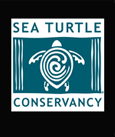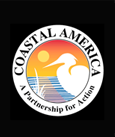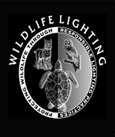Resources

Sea turtles, which are among the oldest creatures on earth, have remained essentially unchanged for 110 million years; however, they face an uncertain future. Illegal harvesting, habitat encroachment, and pollution (physical and light) are only some of the things sea turtles must face as each species struggles to stay alive.
FWC helps to protect and conserve marine turtles and their habitat through:
- The Division of Habitat and Species Conservation – Imperiled Species Management Section (ISM)
- The Fish and Wildlife Research Institute (FWRI)
- The Division of Law Enforcement (LE)
The management program (ISM) is primarily responsible for the management efforts of marine turtle recovery. Staff participate in decisions regarding coastal construction activities, land acquisition and management of nesting beaches and foraging habitats. Staff review and comment on permits for coastal construction activity, environmental resource permits, beach renourishment projects, beach lighting ordinances, and beach cleaning practices. Field evaluations of proposed and permitted activities are conducted to recommend and evaluate the success of marine turtle protection measures.
Coordination of research and management activities is accomplished through various means, including the administration of a marine turtle permit system. Through a cooperative agreement with the U.S. Fish and Wildlife Service, the FWC reviews, issues, and administers permits for both research and management activities conducted with marine turtles within the state. Staff also monitors marine turtles held in captive/holding facilities.
Useful Links From FWC
- Sea Turtles
- 5 Species in Florida
- Laws/Regulations/Guidelines
- Marine Turtle Conservation Guidelines
- Marine Turtle Permits
- Coastal Construction & Other Beach Activities
- Sea Turtles & Lights
- Wildlife Friendly Lighting
- Research
- Mortality Reports
- Nesting
- Educational Information
- Where to view Sea Turtles
- How to Help
- Decals
- License Plates
Laws:
Sea turtles are either endangered or threatened (the loggerhead is the only species that has a population high enough to be only threatened in Florida). They are protected under the Federal Endangered Species Act of 1973 and Florida’s Marine Turtle Protection Act (379.2431, Florida Statutes).
Florida Statutes (F.A.C. Rule 68E-1) restrict the take, possession, disturbance, mutilation, destruction, selling,
transference, molestation, and harassment of marine turtles, nests or eggs. Protection is also afforded to marine turtle habitat. A specific authorization from Commission staff is required to conduct scientific, conservation, or educational activities that directly involve marine turtles in or collected from Florida, their nests, hatchlings or parts thereof, regardless of applicant’s possession of any federal permit.
The Florida Department of Environmental Protection and the Florida Fish and Wildlife Conservation Commission (FWC) dually review permits for coastal construction under Chapter 62B, Florida Administrative Code (F.A.C.). that affects Marine Turtles.
Regulations:
The state of Florida developed a model lighting ordinance (62B-55, F.A.C.) to guide local governments in
creating lighting ordinances. The many counties and municipalities in Florida that have passed ordinances prohibiting light from reaching the beach can be found on the Municipal Code Corporation web site.
List of the
Counties/Municipalities with these Ordinances
Map of the
Counties/Municipalities with these Ordinances (1.7Mb)
Conservation Guidelines:
The Fish and Wildlife Conservation Commission (FWC) issues permits for activities involving marine turtles in Florida under authority granted to the state through a Cooperative Agreement with the U.S. Fish and Wildlife Service (USFWS) under Section 6 of the U.S. Endangered Species Act (ESA). All activities relating to marine turtles must be authorized under subsection379.2431(1), Florida Statutes.







 Copyright 2011 SeaTurtleLighting.net a Division of
Copyright 2011 SeaTurtleLighting.net a Division of